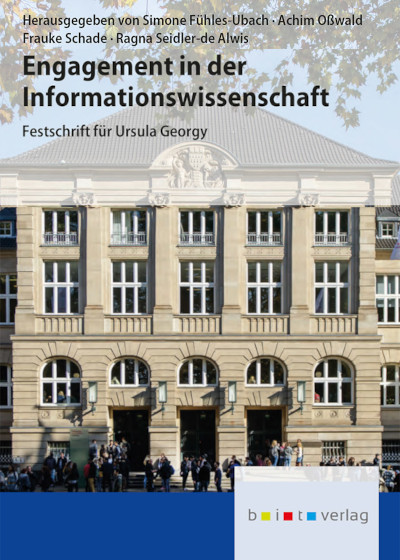 WEITERE NEWS
WEITERE NEWS
- Scoop: Trump admin cuts contracts with scientific publishing giant
- Neue Ausstellung „,Sinnliche und übersinnliche Welt.' Wilhelm Wundt und die Psychologie in Leipzig“ in der Bibliotheca Albertina
- Verankern, Vernetzen, Vermitteln – Außerschulische Lernorte als Chance!
- 3.600 Teilnehmende aus 20 Ländern: Deutschlands größter Bibliothekskongress in Bremen eröffnet
- DIAMAS Releases International Recommendations and Guidelines for Diamond Open Access
- Transparent peer review (TPR) now standard for all newly submitted research papers upon publication in Nature
- DNB veröffentlicht Jahresbericht
- Haufe und Schäffer-Poeschel Verlag starten eLibrary mit PubEngine

Aktuelles aus
L
ibrary
Essentials
In der Ausgabe
- Neue Anforderungen an Führungskompetenz in wissenschaftlichen Bibliotheken
- KI in der Katalogisierung: Drei Chatbots auf dem Prüfstand
- Mehr als nur eine ID: Warum Forscher ORCID nutzen und warum nicht
- Anxiety in der Hochschullehre: zögerlicher Einsatz von ChatGPT
- Smart Reading in Bibliotheken: Aktive Beteiligung von Leser:innen
- Kinder im digitalen Zeitalter:
OECD-Bericht zeigt Handlungsbedarf für Politik und Bildungseinrichtungen - Bibliotheken und ihre Rolle beim Klimaschutz
- Initiative für eine unabhängige Infrastruktur biomedizinischer Literatur –
ZB MED entwickelt PubMed Alternative - Leiterin der Library Of Congress entlassen
- Data Citations –
Datenauswertung in Bibliotheken - Unternehmen investieren gezielt
in künstliche Intelligenz - Springer Nature spendet KI-Werkzeug „Geppetto“ an die Verlagsbranche zur Bekämpfung betrügerischer Einreichungen
- Die San José State University
setzt auf Ihren ersten KI-Bibliothekar

fachbuchjournal























































